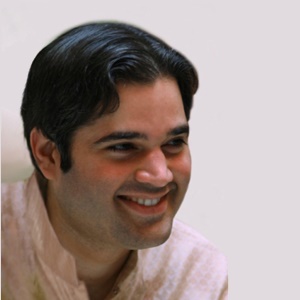IIMB hosts public lecture by Varun Gandhi on ‘Role of Youth in Nation Building’

From farmer suicides to teacher absenteeism in rural India, the MP lists challenges and calls upon youth to step up
20 December 2018: The Centre for Public Policy (CPP) at IIMB and the student-driven Public Policy Club and Entrepreneurship and Innovation Cell of the country’s premier B-school hosted a public lecture on ‘The Role of Youth in Nation Building’ by Varun Gandhi, Member of Parliament, on December 19.
Addressing the audience, comprising students of IIMB and a host of colleges from Bangalore as it was a public lecture, Varun Gandhi, quoted liberally from his book, ‘A Rural Manifesto’ to highlight challenges faced by farmers, labourers, students and teachers in villages across the country.
“Rising farmer suicides in India has become a matter of deep concern. Another concern is unemployment which should be worked upon, not only through skill-based education but also across different variants and models. Reaching out to a maximum number of people in India can only be done by changing policies,” he said.
Sharing statistics on all the issues he touched upon – be it the reach of schemes such as MNREGA or the number of schools across the country, he lamented: “We have data on billionaires, but there is no data on the poorest of poor. These last men, be they the marginal farmers in Vidarbha, or the daily-wage labourers in Marathwada, are who my book is all about and who we must focus on.”
Dwelling on the travails of marginal farmers, he stressed upon the need to come up with innovative solutions and policies that could make the rural economy robust and self-reliant.
Using anecdotes to make his point, he said: “A teacher who sent a cheque to the PMO, requesting that the poorest person in the country get the money, was shocked when his cheque was returned as no data exists on the poorest person in this country”.
To his young audience, he asked: “Are we in a state where privilege perpetuates privilege?” and urged them to live a life of purpose. “Such a life is beyond being rich and famous; it’s about earning the blessings and goodwill of people.”
The Q&A session that followed his talk had young people wanting to know how to enter politics to make a change, to which he replied: “Honestly, build your equity with quality work in your field and political parties will come looking for you!”
Professor G, Raghuram, Director, IIMB, who received a copy of the book from Varun Gandhi, appreciated not just the poet-politician’s sense of geography but his ability to crunch data and engage in field research that resulted in the book.
IIMB hosts public lecture by Varun Gandhi on ‘Role of Youth in Nation Building’
From farmer suicides to teacher absenteeism in rural India, the MP lists challenges and calls upon youth to step up
20 December 2018: The Centre for Public Policy (CPP) at IIMB and the student-driven Public Policy Club and Entrepreneurship and Innovation Cell of the country’s premier B-school hosted a public lecture on ‘The Role of Youth in Nation Building’ by Varun Gandhi, Member of Parliament, on December 19.
Addressing the audience, comprising students of IIMB and a host of colleges from Bangalore as it was a public lecture, Varun Gandhi, quoted liberally from his book, ‘A Rural Manifesto’ to highlight challenges faced by farmers, labourers, students and teachers in villages across the country.
“Rising farmer suicides in India has become a matter of deep concern. Another concern is unemployment which should be worked upon, not only through skill-based education but also across different variants and models. Reaching out to a maximum number of people in India can only be done by changing policies,” he said.
Sharing statistics on all the issues he touched upon – be it the reach of schemes such as MNREGA or the number of schools across the country, he lamented: “We have data on billionaires, but there is no data on the poorest of poor. These last men, be they the marginal farmers in Vidarbha, or the daily-wage labourers in Marathwada, are who my book is all about and who we must focus on.”
Dwelling on the travails of marginal farmers, he stressed upon the need to come up with innovative solutions and policies that could make the rural economy robust and self-reliant.
Using anecdotes to make his point, he said: “A teacher who sent a cheque to the PMO, requesting that the poorest person in the country get the money, was shocked when his cheque was returned as no data exists on the poorest person in this country”.
To his young audience, he asked: “Are we in a state where privilege perpetuates privilege?” and urged them to live a life of purpose. “Such a life is beyond being rich and famous; it’s about earning the blessings and goodwill of people.”
The Q&A session that followed his talk had young people wanting to know how to enter politics to make a change, to which he replied: “Honestly, build your equity with quality work in your field and political parties will come looking for you!”
Professor G, Raghuram, Director, IIMB, who received a copy of the book from Varun Gandhi, appreciated not just the poet-politician’s sense of geography but his ability to crunch data and engage in field research that resulted in the book.
